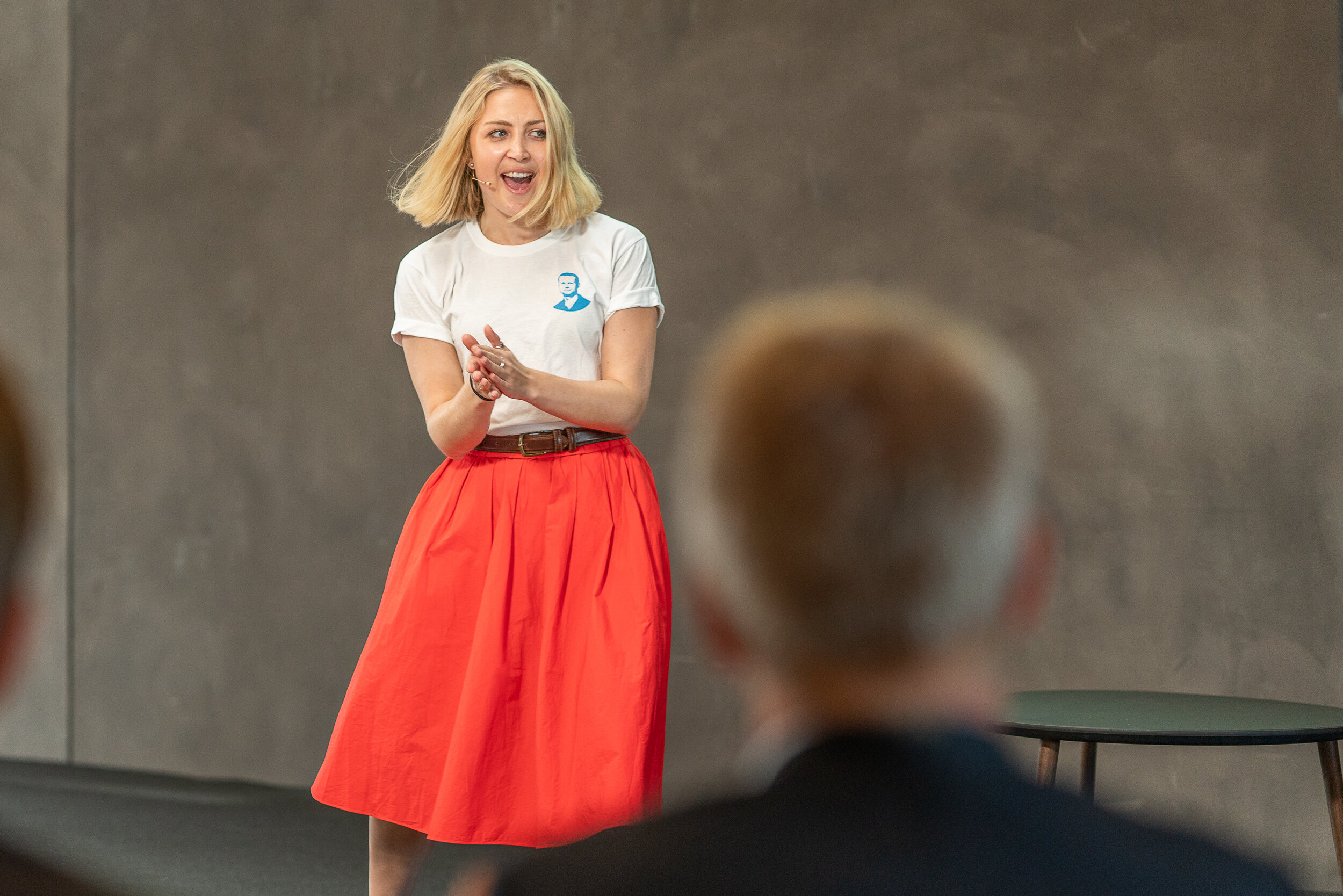The Core Principles and Practical Tools of Entrepreneurship
Problematic Thinking and Innovation
Fall in love with the problem, not the solution.
Introducing the innovator’s mindset. We thrive on problems to solve, not just solutions to sell.
This session helps introduce core entrepreneurial approaches to teams getting started coming up with concepts.
Lean Startup Principles in Practice
Learning is progress, building stuff isn’t.
Embracing the fact that our ideas are just a big pile of guesses.
This session dives into the core tenets of Lean Startup, laying the foundational principles to start testing and learning, killing ideas which don’t work, and rewarding fast failure that saves time and resource.
Business Model Design and Innovation
Cool startups disrupt tech. Great startups disrupt business models.
Applying an investors critique to your idea. Whether you’re just getting started, or working to de-risk an existing business model.
We introduce core tools like the Business Model Canvas to help you ideate, innovate, refine and communicate your ideas.
Customer Data You Can Trust
The greatest entrepreneurial skill is empathy.
Talking to customers is crucial, but getting great data is a skill that needs to be honed.
We develop the practical skills for truly customer centric design, building rapport and real empathy with your customers.
Prioritising Your Risky Assumptions
Constantly ask: what could kill my business first?
With time your most critical resource, how do you spend it can make or break your startup.
This session teaches the skills to break down and prioritise risks, ready for continuous and rapid experimentation.
The Art and Science of Experiment Design
True founders constantly try to prove themselves wrong.
Teaching the technique of testing and learning- applying the scientific approach to startup experimentation.
We help you design the quickest way to test your hypotheses, helping you prove or pivot you business model faster.
Testing Your Timing
The best idea with the best team will still die if the timing is off.
One of the core components of success for any startup is timing.
How do you evaluate whether the time is ripe for your idea or whether you’re too early or late to market? Better to know sooner rather than later, and a question any investor will ask, we explore the Business Model Environment to help you test the influences that are out of your control.
Agile Sprint Planning
Make sure you’re not sprinting too fast to change direction.
Agile was created to help development teams execute at pace with disposable code and fast release.
But when applying Agile practices to non-technical teams, attempts to create processes can easily slip back into bureaucracy by a different buzzword. This session focuses on how to really sprint at speed, keeping teams accountable, focussed, and constantly prioritising the biggest risks to test in their business.
User Journey Mapping
Find and fix your customers’ pains, but make sure you haven’t added more friction in the process.
Whether you’re designing a new journey, evaluating competitors or honing your own solution’s experience, learning to visualise your customer’s journey can help.
User journey mapping is a powerful tool to identify and address unnecessary frictions, reducing churn and creating real moments of delight for your customer.
Pitch & Storytelling
From what to include, to how to craft a compelling narrative, to how to present with presence. We help teams hone talks, pitches, for fundraising, sales, or public speaking.
Bespoke Sessions
We tailor all content to fit your audience maturity and programme, and we also create bespoke materials for lots of our clients, from concepts like creating an Innovation Culture, to more practical skills like Ideation and Team Dynamics, through to facilitating 5 day Design Sprints.











